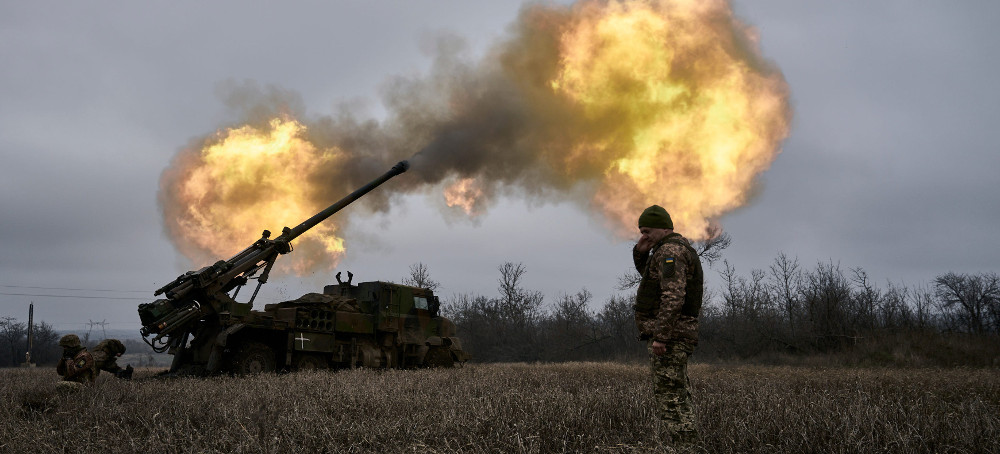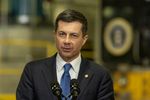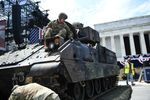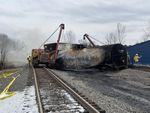Live on the homepage now!
Reader Supported News
An eminent historian envisions a settlement among Russia, Ukraine, and the West.
In our conversation last year, we delved into the nature of the Putin regime, his decision to invade, and what the war could look like as time unfurled. Now we know: the Russian invasion has been a catastrophe in every sense. There have been hundreds of thousands of casualties––it is folly to attempt a more accurate reckoning––and much of Ukraine’s infrastructure is in ruins. Once the Russian military failed to achieve its early hope of taking the capital, Kyiv, and supplanting the Ukrainian leadership, it has prosecuted a vicious war of attrition, in which more and more human beings on both sides are sacrificed to Putin’s pitiless ambitions.
Kotkin is a top-flight scholar, but his ties to the subject are not limited to the archives and the library. He is well connected in Washington, Moscow, Kyiv, and beyond; his analysis of the war draws on his conversations with sources as well as on his own base of knowledge. We spoke again last week, and our discussion, which appears in different form on The New Yorker Radio Hour, has been edited for length and clarity.
Last year, you told me, at a very early stage of the war, that Ukraine was winning on Twitter but that Russia was winning on the battlefield. A lot has happened since then, but is that still the case?
Unfortunately. Let’s think of a house. Let’s say that you own a house and it has ten rooms. And let’s say that I barge in and take two of those rooms away, and I wreck those rooms. And, from those two rooms, I’m wrecking your other eight rooms and you’re trying to beat me back. You’re trying to evict me from the two rooms. You push out a little corner, you push out another corner, maybe. But I’m still there and I’m still wrecking. And the thing is, you need your house. That’s where you live. It’s your house and you don’t have another. Me, I’ve got another house, and my other house has a thousand rooms. And, so, if I wreck your house, are you winning or am I winning?
Unfortunately, that’s the situation we’re in. Ukraine has beaten back the Russian attempt to conquer their country. They have defended their capital. They’ve pushed the Russians out of some of the land that the Russians conquered since February 24, 2022. They’ve regained about half of it. And yet they need their house, and the Russians are wrecking it. Putin’s strategy could be described as “I can’t have it? Nobody can have it!” Sadly, that’s where the tragedy is right now.
How do you even begin to analyze Putin as a strategic figure in this horrendous drama?
He is not a strategic figure. People kept saying he was a tactical genius, that he was playing a weak hand well. I kept telling people, “Seriously?” He intervened in Syria, and he made President Obama look like a fool when President Obama said that there would be a red line about chemical weapons. But what does that mean? It means that Putin became the part owner of a civil war. He became the owner of atrocities and a wrecked country, Syria. He didn’t increase the talent in his own country, his human capital. He didn’t build new infrastructure. He didn’t increase his wealth production. And so if you look at the ingredients of what makes strategy, how you build a country’s prosperity, how you build its human capital, its infrastructure, its governance—all the things that make a country successful—there was no evidence that any of the things that were attributed to his tactical genius, or tactical agility, were contributing in a positive way to Russia’s long-term power.
In Ukraine, what is it that he’s gained? If you look over the landscape, he’s hurt Russia’s reputation—it’s far worse than it ever was. He consolidated the Ukrainian nation, whose existence he denied. He is expanding nato, when his stated aim was to push nato back from the expansion undertaken since 1997. He’s even got Sweden applying for nato membership. And, so, all across the board, it’s a disaster.
The problem is that he’s in power. And soft Russian nationalists, who were semi-critical of Putin, now have no place to go because you’re either all in, or you flee to Armenia, Georgia, Kazakhstan, and Turkey. He’s wrecking his own country in a way, although in a very different way from the murdering that he’s carrying out in Ukraine.
What has been revealed about Russia’s military and its intelligence capabilities in the past year?
The war’s a tragedy. There’s no way to spin it as other than tragic, given what’s happened: the number of deaths in Ukraine; the amount of destruction; the consequences for other countries, including food insecurity. But there have been some pleasant surprises. One was the Ukrainians’ ability and will to fight. It’s been very inspiring from the get-go. We knew they would fight to a certain extent, because they twice overthrew a domestic dictator: in 2004 and in 2014. They went out into the streets, risked life and limb, and were willing to confront those domestic tyrants. Now you have a foreign tyrant. We knew that they would resist, but it’s been a pleasant surprise, the depth of their courage and resistance.
The other pleasant surprise has been Russia’s failures. We knew that there were issues with Russia: many of us thought that the Russian Army was really only about thirty thousand or fifty thousand strong, maximum, in terms of trained fighters who had up-to-date kit—as opposed to hundreds of thousands of dog-food-eating conscripts, untrained or poorly trained, badly equipped soldiers under corrupt officers. But, still, the depth of the Russian failure in Ukraine, from a military point of view of their objectives, was a pleasant surprise for many of us, myself included.
And there’s Europe’s adaptability and fortitude, right? Everybody said, “If Europe doesn’t have its cappuccinos in the morning and its espressos after lunch, there’s no way they could put up with this.” Look what’s happened: they switched from their dependence on Russian energy much faster than anybody thought. They’ve rallied in support of Ukraine pretty much across the board.
Then there’s been what I would call an unfavorable surprise. Despite the sanctions, the Russian economy didn’t shrink, let alone shrink massively. It turns out that the Russian people proved extremely adaptable to the sanctions regime and figured out how to survive—and, in some cases, how to prosper. Russian imports are back, and Russian exports are back. Russian employment is looking O.K. Yes, the figures are a secret, but there are indirect ways that we can figure it out. How much is Turkey exporting? That helps us figure out how much Russia is importing, even though Russia’s keeping it a secret. So it turns out that the sanctions are not having the effect of inflicting severe pain in the short term. We’ll see what the long-term impact is. But so far the pressure to make Russia reconsider its policy of criminal aggression against Ukraine has not been there—even less than I thought it would be, and I was a skeptic on sanctions.
Steve, last year we talked about Sun Tzu, the great Chinese theorist of war, who said that you have to build your opponent “a golden bridge” so that he can find a way to retreat. A year later, do you have any thoughts on what that might look like, and is anybody even thinking about it at this point?
That would be a great thing, if we could do that. But there’s nothing like that in sight. You win the war on the battlefield. There are some shortcuts that could potentially enable you to get to a victory more quickly—for example, if the Russian Army disintegrated in the field. I said, a year ago, that that seemed unlikely, and there hasn’t been any evidence that the Russian Army is disintegrated in the field. In fact, the call-up of the several hundred thousand new recruits—they’ve been deployed, they’re on the front lines, and they’re fighting. The other shortcut we talked about was an overthrow of the Putin regime in Moscow and his replacement by a capitulatory, not an escalatory, Russian leader. But there was no evidence that the regime was in trouble. Authoritarian regimes can fail at everything—they can even launch self-defeating wars—so long as they succeed at one thing, which is the suppression of political alternatives. He’s very good at that. And then the third shortcut was the idea of the Chinese exerting pressure to force Russia to climb down. We didn’t think that China had this leverage, and we certainly didn’t think they would use their imaginary leverage.
So, without the shortcuts, we’re at the battlefield. And the problem with the battlefield is that victory is misdefined here. You have to win on the battlefield, but how do you then win the peace as well? What would winning the peace look like? We know you can win on the battlefield and lose the peace, right? Sadly, we’ve experienced that in our own country, with some of the wars that we’ve been involved in.
Vietnam, for example.
Yes. And then some of the more recent ones in the Middle East.
So here we are with Ukraine, and their definition of victory—as expressed by President Zelensky, who has certainly more than risen to the occasion—is to regain every inch of territory, reparations, and war-crimes tribunals. So how would Ukraine enact that definition of victory? They would have to take Moscow. How else can you get reparations and war-crime tribunals? They’re not that close to regaining every inch of their own territory, let alone the other aims.
If you look at the American definition of what the victory might look like, we’ve been very hesitant. The Biden Administration has been very careful to say, “Ukraine is fighting, Ukrainians are dying—they get to decide.” The Biden Administration has effectively defined victory from the American point of view as: Ukraine can’t lose this war. Russia can’t take all of Ukraine and occupy Ukraine, and disappear Ukraine as a state, as a nation.
But what would Biden—and U.S intelligence and the U.S. military—really like to see, in terms of a shift in attitude, if that’s the case?
We are slowly but surely increasing our support for Ukraine. First it was “Oh, no, we’re not sending that.” And then we send it. “Oh, no, we’re not sending himars,” the medium-range rocket systems. We sent them. “Oh, no, we’re not sending tanks.” Well, yes, we’re sending tanks. So there’s been a kind of grudging, gradual escalation because of the fear of what Putin could do on his side in an escalatory fashion. And so we’ve given enough so that Ukraine doesn’t lose, so that they can maybe push a little more on the battlefield, regain a little bit more territory, and be in a better place to negotiate.
Here’s the better definition of victory. Ukrainians rose up against their domestic tyrants. Why? Because they wanted to join Europe. It’s the same goal that they have now. And that has to be the definition of victory: Ukraine gets into the European Union. If Ukraine regains all of its territory and doesn’t get into the E.U., is that a victory? As opposed to: If Ukraine regains as much of its territory as it physically can on the battlefield, not all of it, potentially, but does get E.U. accession—would that be a definition of victory? Of course, it would be.
Says you, but would the Ukrainian leadership and the Ukrainian people accept a situation in which they’re in the E.U., but Donbas and Crimea remain in Russian hands?
Well, you accept it or you don’t accept it—meaning you continue to fight. And, if you continue to fight, your country, your people, continue to die, your infrastructure continues to get ruined. Your schools, your hospitals, your cultural artifacts get bombed or stolen. Your children get taken away as orphans. That’s where we are right now. I understand they want all of that territory back. But let’s imagine that they can’t take all the territory back on the battlefield. What then? We’re in a war of attrition right now, and in a war of attrition there’s only one way to win. You ramp up your production of weaponry, and you destroy the enemy’s production of weaponry—not the enemy’s weapons on the battlefield, but the enemy’s capability to resupply and produce more weapons. You have to out-produce in a war of attrition, and you have to crush the enemy’s production.
What’s an example of that historically?
Every war that’s ever been fought. There are two ways that major wars evolve. They all start as wars of maneuver because somebody attacks. There’s a lot of movement at first, and then they meet resistance and the offensive stalls out because it’s hard to maintain an offensive, and the other side’s resistance gets ramped up. Then what happens is you radically expand your industrial base for weapons. That’s what the U.S. did in World War Two, and that’s how we won the war.
And so think about this: We haven’t ramped up industrial production at all. At peak, the Ukrainians were firing—expending—upward of ninety thousand artillery shells a month. U.S. monthly production of artillery shells is fifteen thousand. With all our allies thrown in, everybody in the mix who supports Ukraine, you get another fifteen thousand, at the highest estimates. So you can do thirty thousand in the production of artillery shells while expending ninety thousand a month. We haven’t ramped up. We’re just drawing down the stocks. And you know what? We’re running out.
Is Russia running out?
We’ll get to that in a second. But we’re on the hook for Taiwan, and we’re four years behind now in supplying Taiwan for contractual orders of American and allied military equipment. General [Mark] Milley, [chairman of the Joint Chiefs of Staff], God bless him, he’s there in the Pentagon, in that big E-ring where all the important people sit, and he turns his head because all his stuff is going out the door. Everything in our stocks is going right out the door, right past his desk. And it’s not going to Taiwan, which is a place that we want to send it. And so we would have to radically ramp up production, us and our allies, to fight a war of attrition.
And, at the same time, the sanctions were supposed to destroy Russia’s ability to produce weapons, and that’s not happening. Russia can produce about sixty missiles a month under sanctions. So that’s two horrible barrages against Ukrainian civilian homes and infrastructure, their energy infrastructure, their water supply—sixty missiles a month. That doesn’t include what they’re buying back from Africa that they previously sold. What they’re trying to get in deals with North Korea or Iran. The Soviet arsenal, the biggest arsenal ever assembled—a lot of it is rotting, but not all of it is rotting. Some of the production is still ongoing, not as much as Russia would like, but enough to carry out the strategy of “If I can’t have it, nobody can have it.”
If you’re in a war of attrition, you’ve got to be bombing the other side’s production facilities. You have to be denying the other side the ability to resupply on the battlefield. And you have to be ramping up your production like we did in the previous wars where we were directly engaged, but we haven’t done here. So tell me: How do you fight a war of attrition with your left hand tied behind your back and your right hand tied behind your back? The Ukrainians are amazing. It’s just so inspiring to see what they’re doing. But if we get every inch of territory back—and we’re not close to that—we still need an E.U. accession process. Ukraine will need a demilitarized zone, no matter how much territory it gets back, including if it somehow gets Crimea back. It’s got the problem that, next year, the year after, the year after next, this could happen again.
Recently, in the Washington Post, there was an interview with [Kyrylo Budanov], the very young head of Ukrainian intelligence. What did I get out of the interview? Two things. One: a sense of optimism that includes not only doing well on the battlefield but getting back Crimea within the next year. And, number two, he said with great confidence that Vladimir Putin is extremely sick. I have the suspicion that the rumors of Putin’s poor health are—the origins of that are—from Ukrainian intelligence. Can you address those two points?
Of course, we fully understand Ukrainian intelligence has to be optimistic. He’s not going to go in the Washington Post and say, “Our chances of taking Crimea are next to zero. We’re going to have another hundred thousand casualties over the course of the next year or so. Even if the tanks arrive by May or late April.” He can’t say stuff like that.
Is there any evidence that Putin’s health is actually poor?
The director of the C.I.A., William Burns, publicly announced that there’s no evidence that Putin is sick. Once again, we want it to be true, because we want a shortcut to a Ukrainian victory. The problem is, we have to live in the circumstances we’ve got. If you look at the North Korea–South Korea outcome, it’s a terrible outcome. At the same time, it was an outcome that enabled South Korea to flourish under American security guarantees and protection. And, if there were a Ukraine, however much of it—eighty per cent, ninety per cent—which could flourish as a member of the European Union and which could have some type of security guarantee—whether that were full nato accession, whether that were bilateral with the U.S., whether it were multilateral to include the U.S. and Poland and Baltic countries and Scandinavian countries, potentially—that would be a victory in the war.
Now, if Ukraine can achieve its stated victory of every inch of territory, reparations, and war-crimes tribunals, it still has to get into the West in order to consolidate those gains. It still needs a security guarantee. So we’re arguing over some issues which are deeply important to the Ukrainians because of the atrocities committed against them. At the same time, it’s maybe not the definition of victory that would get Ukraine to a better place, in a more reasonable amount of time with fewer casualties, given the situation.
Western patience and Western supplies are not a given for all kinds of factors. Various European factors. You have a Republican Congress now that is not as likely to accede to Ukrainian requests as the Democratic one was. Am I right?
I’m not worried about resolve here. I came up with this equation early in the process, which is: Ukrainian valor plus Russian atrocities equals Western unity and resolve. And it’s held. Because the Ukrainian valor continues—and it continues to inspire the whole world, not just their own war effort internally. The Russian atrocities continue because that’s what this war is. It’s an atrocity. It’s more like murder than it is like war. So I’m good on the Western alliance holding together. My problem is material. I don’t have a military-industrial complex on the scale to continue this indefinitely. I’m running my own stocks down. I’m not supplying my other allies, including Taiwan. And I have an opportunity-cost issue here.
But wait a minute. Russia has the same problem, with a different look. It has proven that its military—on a level of organization and supply and strategy—is nothing like what it had been advertised. We have the so-called Wagner Group, led by Yevgeny Prigozhin, going from prison to prison, taking thousands of people who were serving time, and throwing them onto the Ukrainian battlefield within days.
He’s a former convict himself!
A former chef and former convict. But what does that suggest about Russia’s military? It, too, is being depleted rather quickly, no? Or are you just saying, because of the sheer population and scale, Russia’s advantages are obvious?
Russia is much bigger; it has many more people. Also, the Russian leadership doesn’t really care about its people. If the Russian leadership throws twenty thousand untrained recruits into the meat grinder and three-quarters of them die, what do they do? Do they go to church on Sunday and ask forgiveness from God? They just do it again. People talk about Stalin and the big sacrifices that the Soviet people made in World War Two, losing twenty-seven million people. They were enslaved collective farmers. He had millions and millions more of them. He threw them into the meat grinder and they died. Then he threw more into the meat grinder!
In that respect, isn’t the Stalin era different than the Putin era? Ever since the controversial mass conscription, you saw political repercussions in Russia that you would not have seen in Stalin’s time.
Sort of. You saw tens of thousands of people resist and flee. You also saw a couple of hundred thousand get deployed. You know, Leonid Bershidsky, of Bloomberg, got this right. He said we focus on those who resist the call-up, the conscription. We don’t focus on those who are actually deployed. The Russian leadership has no trouble expending its weaponry and sending its people to death. The value of life in the Putin regime is just not there. When you talk about Roosevelt not wanting to take Berlin before Stalin did, because he didn’t want to sacrifice human lives—and then people complain that he should have done it anyway? Democracies don’t fight wars which are intentionally a meat grinder, to just throw their people away. And a war of attrition is what we’re asking of the Ukrainians. They’re doing the fighting. We’re not doing any of the fighting.
Much of the challenge here comes from the fact that President Biden and the European allies have decided that there will be no direct engagement between nato forces and Russian forces. There’s been a ceiling on how far we would go in assisting the Ukrainians. We don’t want an escalation of direct confrontation with the Russians or Russians using some of the capabilities that Putin has, that we all know about—and we’re right to be concerned about.
People say, “It would be irrational if Putin were to use nuclear weapons. It would be self-defeating. He would just get destroyed himself in retaliation.” And the answer is: from our point of view, certainly that would be really stupid. Just like this war. Starting this war looks really stupid, from our point of view.
But he thought that he could take Kyiv, and arrest or kill Zelensky. That was the plan, that it would be a matter of days or weeks, tops. It hasn’t gone that way. On the use of nuclear weapons––it’s been made clear to him by representatives of Western governments and the United States precisely what kind of retaliation he could expect.
Yes, I think that’s a great policy. I’m very happy that that happened. But here’s the problem. He has the capabilities. He’s got a lot of capabilities short of nuclear weapons. He could poison the water supply in Kyiv with chemical and biological weapons. He could poison the water supply in London, and then he could deny that it’s his special operatives that are doing that. He could cut the undersea cables, so that we could not do this radio broadcast. He can blow up the infrastructure that carries gas or other energy supplies to Europe. He’s got submersibles, he’s got a submarine fleet, he’s got special ops who can go right down to the ocean floor where those pipelines are located.
What does restrain him?
We don’t know. You tell me. When someone has these capabilities, you have to pay attention. You can’t say, “Oh, you know, that would be crazy if he did that. That would be totally self-defeating. What idiot would do that?” And the answer is: O.K, but what if he does it?
We have to be concerned about escalation. I have been in favor of greater supply, more quickly, of more weapons to the Ukrainians from the beginning. But not because I’m blasé about the capabilities that Russia has.
Why are you in favor of that?
Because I think the Ukrainians deserve the chance to try to win on the battlefield before we get to that part that you described as: each side has to sit down and make unpleasant concessions, and you have to sit down across from representatives of your murderer, and you’ve got to do a deal where your murderer takes some of the stuff he has stolen—and killed your people in the process. That’s a terrible outcome. But that’s an outcome which may not be the worst outcome. The point being that, if you get E.U. accession, it balances the concessions you have to make.
How big has the Ukrainian exile been—or how many Ukrainians have left?
We don’t know exactly, but we’re in the multimillions. And that’s your future. That’s the future of your country. The hope is that it’s temporary and they get them back, and they can go back to a peacetime country. And they can be prosperous and they can have careers and they can show what they can do—not just on the battlefield, like their elders are doing now, with the incredible ingenuity that we see from the Ukrainians—but that they can do that and establish civilian companies. Then you have a reconstruction issue. Even if you win, you’re wrecked. You’ve got to have reconstruction. You know what kind of numbers we’re talking about? Three hundred and fifty billion dollars is one of the numbers being tossed around.
If things ended today?
Yeah. And who knows what the actual number is? What was Ukrainian G.D.P. before the war? About a hundred and eighty billion dollars. So you’re talking double G.D.P., in reconstruction funds, has to somehow enter that country and not disappear, not vanish. What happened to the covid funds in our country? We’re still trying to find some of them. Billions disappeared. And so you’re talking double their prewar G.D.P. So for that you need functioning institutions, not wartime resistance institutions. You need a civil service. You need an independent judiciary. You need a lot of stuff—a banking system—to manage that type of reconstruction and doing that honestly, fairly, and smartly. Right now, there’s no prospect of those reconstruction funds being able to be used well, because they don’t have those functioning institutions. They’re at war. And they didn’t have such functioning institutions before the war started, as you know.
It was interesting to see Zelensky get rid of a few top officials for corruption charges very recently, in the middle of the war.
What choice does he have? Part of it is real, and part of it is performance. He’s an incredible leader in a wartime situation, and we owe him a lot. We owe him the rejuvenation of the West—the rediscovery of the West—in institutional, not geographic, terms, including our Asian partners, Japan, Australia.
We’re in a situation where the sooner we get to a reconstruction of Ukraine in some form, where we don’t lose a generation of kids who grow up to be eighteen in Poland—we want to get those kids back. We want to build a South Korea-style Ukraine, part of the E.U., behind the D.M.Z., where there’s an armistice, not a settlement; where there is no legal recognition of any Russian annexations unless there’s some type of larger bargain, peace settlement; where the Russians make significant concessions as well and there is the move toward an actual security guarantee rather than discussion and promises of a security guarantee. We need to get to the other side of this in a way that gives Ukraine a chance to be the country that they want to be, deserve to be, and could be with our support.
It’s one thing for them to now get the tanks and see if they can pull off an offensive, likely in the summer—or, at a minimum, stave off a Russian offensive, which is under way as we speak, in the eastern part of Ukraine. There is the makings of a Russian offensive under way, with some of those hundreds of thousands of conscripts who got brought in. So when do we get to the point where we understand that it is E.U. accession, reconstruction, bringing people home to live—the end of hostilities in some form—to build a Ukraine, a peacetime Ukraine, on some version of Ukrainian territory, which doesn’t concede that the rest of the territory is no longer Ukrainian territory, even if they don’t control it?
Let’s remember a divided Berlin, and East and West Germany. You lived through that. Nobody thought that would happen, but it was the right thing to do: to build a successful West Germany, integrated into Europe with a nato security guarantee. You can look at that as decades and decades of commitment, but also success. You can look at the Korean Peninsula as a worse situation because it’s still divided.
People talk about the Cold War being over. It sort of is—except for the places where it’s not. And so that outcome is suboptimal. The better outcome is a Russia that looks like France. That is to say, it’s a regular big country, that behaves under rule of law and international norms, and is proud of its own culture, and has a large army but doesn’t threaten its neighbors, and wants to live peacefully in the region in which it’s in. That would be a great outcome. Let’s hope that we see that outcome for the Russian people, as much as for their neighbors. But, until we see that outcome, what are we going to do?
Say Ukraine takes back some of its territory—this spring and summer, maybe. And then, two years from now, there’s another Russian gear-up, to something else that might happen. How do we prevent ourselves from having hostilities continue indefinitely? Which I’m not sure they can, given our industrial base when it comes to production of weaponry. We have other priorities—as we should, as a country—where we want to expend taxpayer funding and resources, and build, and do a lot of things that your staff writers write about all the time in your magazine. And so I’m in favor of a Ukrainian victory. I’m against the Russian victory. But I’m defining a Ukrainian victory within the circumstances in which we live.
Let’s say there is such a settlement. Where does that leave Russia? Where does that leave a Putin regime?
Slobodan Milošević—you’ll remember him as the former tin-pot dictator in Serbia––lost four wars before he was kicked out. Four wars. So maybe the Putin regime experiences some domestic turbulence if it’s unable to achieve its maximal war aims. Maybe he survives—he lasts for a while. Russian power going forward degrades even further. Their status as an energy superpower degrades. Their status as a junior partner in a grand Chinese Eurasia gets more dependent, provided the Chinese will accept Russia as a junior partner. Russia’s hemorrhaging human capital. The whole new economy fled Russia.
All the I.T. people, called ITshniki.
They’re all gone.
In the tens of thousands, hundreds of thousands.
They have no future there. The Ukrainian ones are still there. They’re the brilliant people running the social-media side of the defense ministry. They’re the ones re-rigging those drones—commercial drones, bought off the shelf for ninety-nine dollars, that they attach a catapult and a grenade to. Those Ukrainian twentysomething-year-olds—and in some cases teen-agers—are still in Ukraine, many of them. And they’re on the side of their country. Russia has lost those people at least for the time being, but maybe for a generation or more.
That kind of cosmopolitan, urban life in Russia that you saw is gone.
And so we have a Russia which looks more and more like the Putin regime as a society, not just as a regime, potentially. We have all the flotsam of the xenophobic hard right in Russia complaining that the war is not being fought properly, wanting to nuke Ukraine, nuke the West, as they go on social media and express the extremism that unfortunately social media facilitates and encourages. And so that’s the Russia we have already. Russia has already been transformed utterly. Wars are transformational in all ways.
This war is just—it’s so painful. My whole life was writing about Stalin, and I would get absorbed in that. But then I put that down, and I had kids to hug, and I had a wife who loved me, and I had students that I could harangue in the classroom. Now I put the Stalin thing down—and then I got the Stalin thing again. In the real world. In real time. So it hurts. This whole thing hurts a lot. There’s no relief from this part of the world.
Follow us on facebook and twitter!
PO Box 2043 / Citrus Heights, CA 95611












